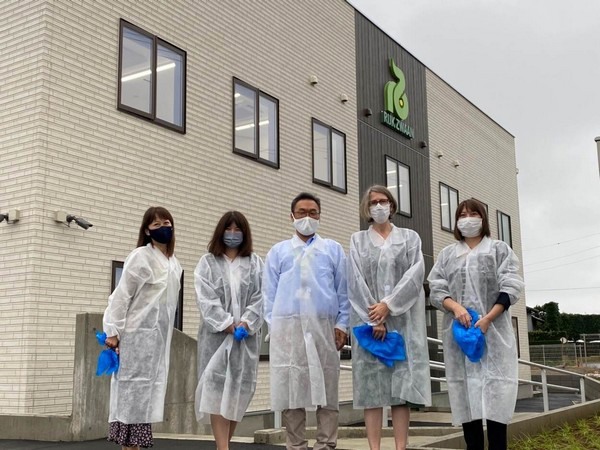In July 2018, family-owned company Rijk Zwaan, based in De Lier (NL) with more than 30 subsidiaries worldwide, established a wholly-owned subsidiary in Shibayama Town in Chiba, near Narita International Airport.
Curious to learn about the subsidiary’s ambitions and experiences to date, Denise Lutz, the newly appointed Agricultural Counsellor at the Netherlands Embassy in Tokyo, and her team paid a visit to Rijk Zwaan Breeding Japan K.K. on 9 September. The team was met by Mr. Junji Kimbara, Managing Director of Rijk Zwaan Breeding Japan, who gave a presentation on their activities worldwide and in Japan, followed by a guided tour of their breeding station.
Japan is one of the most important vegetable seed markets in the world and is known for its good quality vegetables. The shift of eating habits to more Western food, easy access to the biggest airport in the nation, good access to public genetic resources and research were the reasons for Rijk Zwaan to set up a wholly-owned subsidiary in Chiba, which, with neighboring Ibaraki, account for 14% of vegetable production in Japan. It is also close to the large Tokyo metropolitan area, with its big consumption market.

At the entrance of Rijk Zwaan Breeding Japan Office (Center: Mr. Junji Kimbara, Managing Director, Rijk Zwaan Breeding, Second from right: Ms. Denise Lutz, Agricultural Counsellor of the Netherlands Embassy in Tokyo.
Rijk Zwaan’s market share in the global vegetable seed market is 9%, ranking in 4th place, following Vilmorin, Bayer, and Syngenta.
The company’s objective is to develop disease-resistant and high-yield varieties in a sustainable way for the benefit of the whole fresh produce chain, from growers, dealers/processors, and retail to consumers, taking climate change, demographic shift, and consumer trends into consideration. Primary targets are high-tech growers in Japan, but small to mid-sized growers are also customers.
Market research
The subsidiary is mainly engaged in the R&D of vegetable seeds for the Japanese market. For R&D purposes, but also to showcase the latest commercial varieties to seed buyers, the subsidiary rents 6 ha patches of farmland, of which 2.5 ha is for open field crops and 40 a for crops in greenhouse cultivation. Besides conventional Japanese greenhouses, the subsidiary will also operate a more high-tech greenhouse, the construction of which will be completed in later next year.
As Japan has a different climate, cultivation system, and market demands, it is necessary to have a research/demonstration farm in Japan. At Rijk Zwaan, breeding is done by conventional crossing. Their varieties have special traits which customers appreciate. The company deals with 400 varieties of lettuce and 200 varieties of tomatoes.
Mr. Kimbara: “When creating a new variety, which can take 6-16 years, crossing and selection are key, taking into account natural diversity, high-tech research, and selection and real-life conditions. For high-quality seeds, specific production facilities, intensive quality control, and planning and logistics are of importance. All seeds produced are sent to Rijk Zwaan Head Office in De Lier for quality control regarding genetic purity, health, and germination.
Bron: A visit to Rijk Zwaan Breeding Japan | Nieuwsbericht | Agroberichten Buitenland.
For more information:
Ministry of agriculture, nature and food quality of the Netherlands
www.government.nl/en
